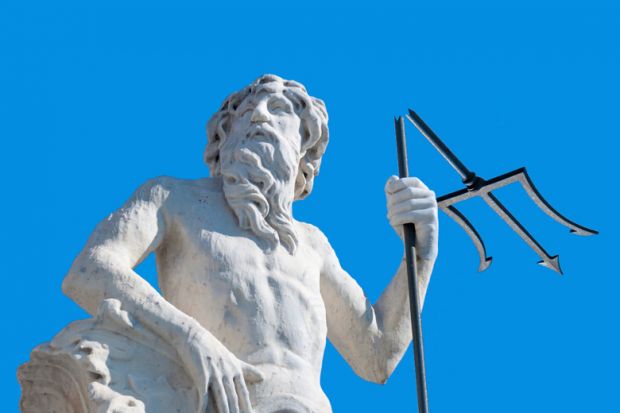Almost every religious group, sect or denomination utilises the same sincerely felt rhetorical trick: that they can trace their origins to the beginning of their parent religion or even time. Catholics stand on the rock of St Peter, Protestants claim to retrieve the meaning of Jesus’ own words, and Jews, Christians and Muslims alike trace themselves back to Abraham and the creator of the universe. So we are due for a revival of atheist history, self-consciously grounded not in Voltaire but in the great thinkers of the ancient world.
In Battling the Gods, Tim Whitmarsh offers a well-written and fascinating glimpse of the Greek philosophers and writers who are the founding fathers of modern atheism. Set over a thousand years, this history begins with the dawn of literate society and traverses the rugged terrain of Greek and Roman history towards the Christianisation of the Roman Empire.
Whitmarsh is an adept historian, but perhaps a better matchmaker, as he introduces us to entertaining, savvy and sometimes raucous ancient thinkers who can be easily paired with the new atheists of the 21st century. Many will seem familiar to devotees of modern atheism. The 5th-century philosopher Democritus, who coined the word “atom”, hypothesised that the world was nothing but swirling particles and conjectured (as many of his time did) that god-talk was for those who could not grasp more complicated theories of the universe. And there is no shortage of philosophers who criticise the moral failings of intemperate deities such as philandering Zeus and jealous Hera.
Others, like the playwright Aristophanes, are comic critics, ridiculing by proxy those who believe in the easy assistance of deities. But one wonders if criticism is being confused with atheism. Aristophanes’ lampoon was directed against many, including Socrates, a man who died on the charge of atheism. Certain kinds of religious belief were criticised by ancient medics such as Galen and Hippocrates, neither of whom can be said to have been atheists.
In a similar vein, is it correct to see philosophers such as Xenophon and Anaxagoras, who identified God with nature, as atheists? To be sure, their ideas prefigure those of Spinoza, but they are not identical. Whitmarsh is not unaware of the problem, and yet nevertheless includes these radical reformers as if they were atheists.
Where the book falls down is in its easy importation of modern categories of religion and atheism into the ancient world. In a rebuff to those who see the clergy as the gatekeepers of popular morality, Whitmarsh brilliantly observes that even though religion was everywhere in the ancient world, Greek religion had little to say about morality or the cosmos. These are concepts that the heirs to Abrahamic definitions of religion identify as religion’s central core and purpose. Yet Whitmarsh himself is seduced by this definition as he distinguishes between philosophy’s interests in big intellectual questions and religion’s practical civic goals. He works independently from recent studies – such as Brent Nongbri’s Before Religion: A History of a Modern Concept – that show that there was no essential category of religion in the ancient world. Nevertheless, his well-executed book duly provides atheists with their own somewhat exaggerated sacred history.
Candida R. Moss is professor of New Testament and early Christianity, University of Notre Dame.
Battling the Gods: Atheism in the Ancient World
By Tim Whitmarsh
Faber & Faber, 304pp, £25.00
ISBN 9780571279302
Published 4 February 2016
POSTSCRIPT:
Print headline: Unmoved by the prime movers
Register to continue
Why register?
- Registration is free and only takes a moment
- Once registered, you can read 3 articles a month
- Sign up for our newsletter
Subscribe
Or subscribe for unlimited access to:
- Unlimited access to news, views, insights & reviews
- Digital editions
- Digital access to THE’s university and college rankings analysis
Already registered or a current subscriber?




